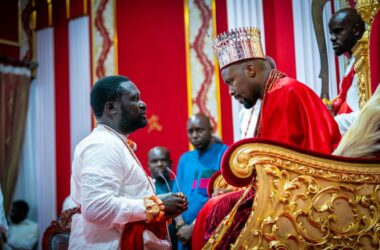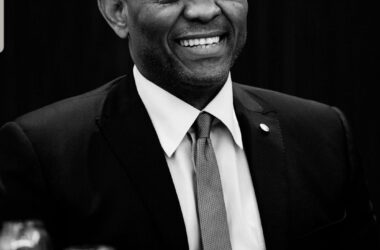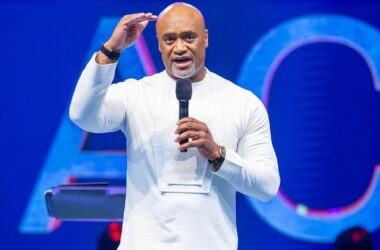The deep sense of anomie currently being felt across the length and breadth of Nigeria (as a result of the harsh economic situation) just got even deeper. To those who saw President Bola Ahmed Tinubu’s dual reform measures last year (ie removing subsidy payments on petroleum products and floating the naira in quick succession) as a double-headed monster, it would seem as if the monster has just added yet another head. Whether or not it will eventually mutate into the proverbial Hydra in coming days remains to be seen.
The Federal Government’s announcement last week that it was increasing the tariff on electricity (allowing power distribution companies, or DisCos, to raise prices to N225 per kilowatt-hour from the previous rate of N68) has trigerred an outcry from the vast majority of Nigerians, who have described the 230.8% hike as inhuman, insensitive and anti-people. In a country where electricity consumption per capita is already among the lowest on the planet (with about 92 million persons out of the country’s over 200 million population lacking access to power in spite of years, and billions of dollars, of investment), and supply has historically been erratic and unreliable, the recent hike is seen as a double (or rather, triple) whammy, if you consider the joint impact of the afore-mentioned subsidy removal and naira floatation policies. With Nigerians still grappling with the cost-of-living crisis occasioned by the above pair of policies, this latest action by the Tinubu-led administration is sure to have far-reaching repercussions on lives, livelihoods and businesses.
Recall that in June 2023, Tinubu signed a new Electricity Act into law, following calls to reform the power sector and remove it from the country’s exclusive legislative list (ie making power generation the sole preserve of the FG). The new law replaced the 2005 Electricity & Power Sector Reform Act, and its enactment, the FG said at the time, was informed by (a) the need to institute a ‘cost-reflective’ tariff policy in the sector, and (b) the need to open the sector up to private investment in order to mitigate the many challenges plaguing the sector – ranging from poor policy enforcement, regulatory uncertainty, gas supply and transmission system constraints, to power sector planning shortfalls. Also, millions of households are yet to be metered, in spite of repeated assurances by regulators and industry players over the years.
At the time, the Honorable Minister for Power, Chief Adebayo Adelabu had explained the FG’s decision to postpone the implementation of the ‘cost-reflective’ tariff reform to 2024 thus: “The government is sensitive to … the sufferings of the people, and we are not ready to aggravate this suffering … which is why … it must be a journey rather than a destination. And the journey starts now. We will do a gradual migration from the subsidy regime to a full cost-reflective regime and we must start with some customers.”
But in February this year, the Minister complained that the FG was finding it very difficult to sustain subsidies on electricity in the country, pointing out the indebtedness of the power sector to electricity-generating companies (GenCos) and the companies (GasCos) which, he said, stood at over N3 trillion, in addition to ‘legacy debts’ owed to these entities – to the tune of another N2 billion. Defending the tariff hike last week, Adelabu said, “What we … made provision for in the 2024 budget for subsidy is N450 billion, (but) we will require N2.9 trillion for subsidy. So can we afford it? We must be realistic.”
Perhaps in response to the massive outcry occasioned by last week’s hike, the government has been at pains to explain that the hike will only affect a small segment of consumers (1.5 million people, to be precise, out of a total of about 12 million consumers, who make just over 15% of consumers nationwide). These 1.5 million consumers comprise a category identified as Band A, (i.e. people who enjoy at least 20 hours of electricity – which add up to a disproportionate 40% of power supply – per day). According to Adelabu, as well as officials of the Nigerian Electricity Regulatory Commission (NERC), the remaining 10.5 million customers will continue to enjoy the government’s subsidy at about 70%.
For the majority of Nigerians, though, the VERY IDEA of removing government subsidies (whether partially or in full) on a vital public service such as electricity (and worse still, coming so soon after the removal of subsidy on petroleum products, among other tough measures by the Tinubu administration) speaks to a fundamentally flawed engagement between the government and the citizenry it is supposed to serve. To critics of the move, especially among the afore-mentioned Band A consumers, it speaks of a disconnect between the purely mercantilist consideration that seems to have inspired this policy (namely, government’s need to boost its finances, ostensibly to meet its budgetary and other commitments) and its obligations to the people. Indeed, some critics have couched this perceived disconnect in moral terms, calling the hike ‘unfair’; ‘wicked’; ‘insensitive;’ ‘callous’; ‘an appalling display of gross disregard for the welfare and happiness of the Nigerian people, ‘ and so forth.
Many commentators have gone as far as to fault the government’s rationale for the tariff hike as morally untenable. How come, they say, government is ‘finding it difficult’ (to quote the Minister) to sustain its subsidy on electricity, whereas it is experiencing no such difficulty in subsidizing annual religious pilgrimages to the ‘Holy Lands’ of Mecca, Jerusalem, Rome, etc (to the tune, according to some sources, of billions of naira)? Either, they suggest, someone is being deliberately dishonest, or the government as a whole needs to appraise its scale of priorities.
Also morally untenable, critics say, is the Minister’s contention that countries such as Ghana, Togo, and Benin Republic pay much more than Nigeria for electricity. This argument, they say, conveniently ignores the fact that the earning power of the average citizen in these countries (as indicated by the official minimum wage and other indicators) is much higher than that of the average Nigerian worker.
The Minister’s argument, according to opponents of the hike, also flies in the face of the Tinubu administration’s repeated assurances that it is battling hard to bring down inflation as far as basic necessities such as food and transportation are concerned. Already, Nigerians are confronted by a steady rise in inflation levels currently pegged by the National Bureau of Statistics at 31.70%. So, is this hike going to help or hurt the government’s battle against inflation? they ask.
Many stakeholders in the country’s private sector have also called attention to the potentially devastating impact the hike will have on the country’s industrial sector – which is already reeling from years of unfriendly ease-of-doing-business indicators. The Abuja Chamber of Commerce and Industry (ACCI), in particular, said the increase would adversely affect businesses throughout different sectors of the economy – especially small and medium enterprises (SMEs) which it says are so vital to the economic fabric of the country. Many SMEs, the ACCI noted, are already struggling with reduced demand, supply chain disruptions and financial constraints, and that the added burden of higher electricity tariffs would threaten their long-term viability, hamper their ability to invest in new technologies and growth, and affect their competitive edge in local and global markets. “It is vital,” the body said, “to strike a balance between ensuring a sustainable energy sector and mitigating the adverse effects of tariff hikes on businesses, particularly during these trying times.”
Other stakeholders across all segments of public life – including prominent players among the political class in both the ruling and opposition parties – have been synonymous in expressing similar sentiments.
One dark undercurrent to this whole conversation has been the public perception about the performance, so far, of Minister Adelabu (who, it should be noted, has been identified in some quarters as one of the ‘least-performing’ Ministers in the Tinubu cabinet) and how this hike reinforces that negative perception. While watchers of the government have attributed Adelabu’s scorecard to incompetence (given his relative lack of experience in the power sector, by virtue of his background as a banker and a former Deputy-Governor of the CBN), others attribute his performance to a determination by certain nameless forces to derail, and therefore discredit, the administration of President Tinubu. The hike, therefore, they allege, is not only anti-people, but essentially anti-Tinubu!
Whatever the truth of the latter notion, the crisis provoked by the tariff hike demands a decisive response from the President. He must either fire or redeploy the Minister, or prevail on him to reverse the hike.
Anything short of this will be sending mixed, and confusing, signals to Nigerians. In the midst of the hardships they already face, such a scenario is an ill-wind that will blow nobody (whether the government or the governed) any good.






